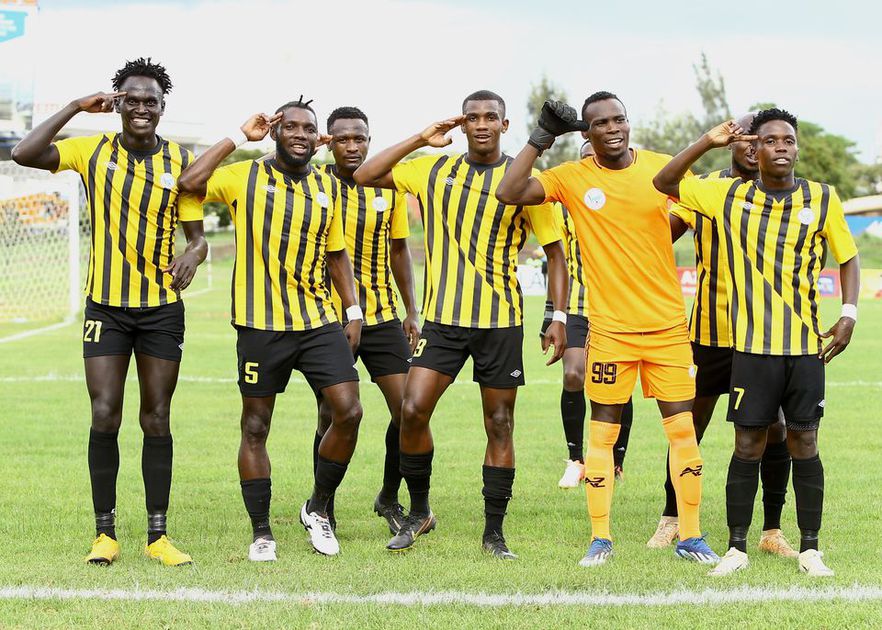As the 2023/24 FKF Premier League season kicks off, clubs across the league have been busy reshaping their squads to ensure a competitive campaign. However, for Sofapaka, a club that once boasted the title of 2009 league champions, the situation has taken a dramatic turn. The club finds itself embroiled in a FIFA-imposed transfer ban, preventing it from registering any new players ahead of their crucial weekend fixture against FC Talanta.
Sofapaka’s transfer ban stems from the club’s failure to settle outstanding payments to three former employees: Fiston Abdul Razak and Mousa Omar, both players, and former coach Pablo Nduwimana, all of Burundian origin. The combined amount owed to these individuals is reported to be around 7 million Kenyan shillings. As a result of the unresolved financial dispute, FIFA has slapped the club with a transfer ban, leaving Sofapaka unable to register any new signings to bolster their squad.
Matano’s Limited Squad Options
Coach Robert Matano faces significant challenges as he prepares his team for the upcoming match against FC Talanta on Saturday. The club’s inability to register new players has forced him to work with a reduced squad, just as he did two weeks ago in a match against Tusker FC. In that game, Sofapaka managed to field only 13 players, a stark contrast to the depth needed to compete at the highest level. Despite these limitations, Sofapaka put up a resilient performance, narrowly losing 1-0.
With the transfer window now closed and no new signings registered, Sofapaka is faced with a tough task ahead. Nine players have left the club during the transfer window, further exacerbating the squad’s challenges. The club’s inactivity in the market stands out starkly compared to the other teams in the league, many of which were highly active in bolstering their rosters.

Transfer Market Activity: Winners and Losers
In contrast to Sofapaka’s challenges, other teams in the FKF Premier League have taken full advantage of the transfer window. Mathare United and Shabana FC were among the most active clubs, each signing 14 players to strengthen their squads. Mathare’s activity in the market was notable, as they offloaded 13 players to make way for experienced additions, including Michael Wanyika and Kevin Kimani. Coach Sammy Omolo of Shabana FC, on the other hand, released 15 players to create space for fresh talent as he seeks to revamp his squad for the season ahead.
Posta Rangers also made significant moves in the transfer market, signing 13 new players to bolster their squad. The heavy transfer activity of these teams reflects their ambition to be competitive in the league and strengthen areas that were previously lacking.
Minimal Moves from Traditional Powerhouses
While some teams were highly active in the market, other traditional powerhouses like AFC Leopards and Nairobi City Stars adopted a more conservative approach. Both clubs signed only five players each during the transfer window. However, AFC Leopards released a total of 11 players, raising concerns about the depth of their squad. The decision to sign fewer players may come with its risks, especially as the club navigates a long and demanding season.
Gor Mahia, another of the league’s major clubs, made only minimal changes, bringing in six players while offloading seven. Known for their ability to manage with a stable squad, Gor Mahia seems to have opted for consistency over drastic squad changes, banking on the experience of their core players to maintain their competitive edge.
Kariobangi Sharks, a club known for regularly reshaping its squad, made fewer moves than usual this transfer window. The team signed six players and promoted three from their youth academy while releasing seven. The Sharks’ strategy seems to focus on developing young talent and ensuring gradual changes rather than overhauling the squad.
ALSO READ
- Chepchirchir Shatters Course Record in 800m Victory at Zagreb Meeting
- Chelsea Boldly Defends Signing of Jadon Sancho on Loan from Manchester United
- France Bounces Back with 2-0 Victory Over Belgium in UEFA Nations League
Mara Sugar’s Continuity Plan
Among the newcomers to the FKF Premier League, Mara Sugar has chosen a strategy of stability. The club, which earned promotion to the top tier this season, largely retained the squad that achieved their success. They did, however, release six players and brought in nine, three of whom were signed from the FKF Premier League. This balanced approach allows them to keep their core intact while adding reinforcements in key areas. Mara Sugar’s strategy of continuity could serve them well as they adjust to the demands of top-flight football.
Sofapaka’s Uncertain Future
As the season progresses, the situation for Sofapaka remains uncertain. With the transfer window now closed and the squad depleted, coach Robert Matano faces the difficult task of navigating a full season with limited resources. The club will need to resolve the ongoing financial dispute to lift the transfer ban and avoid further disruption to their campaign.
For now, the club’s hopes rest on the resilience of the remaining players and the tactical expertise of Matano. Sofapaka’s performance in the coming weeks will determine whether they can weather this storm and remain competitive in the FKF Premier League.
The contrast between Sofapaka’s struggles and the aggressive transfer activity of other clubs highlights the varying fortunes of teams in the league. As some clubs strengthen and adapt, others like Sofapaka face significant hurdles that could define their season.



